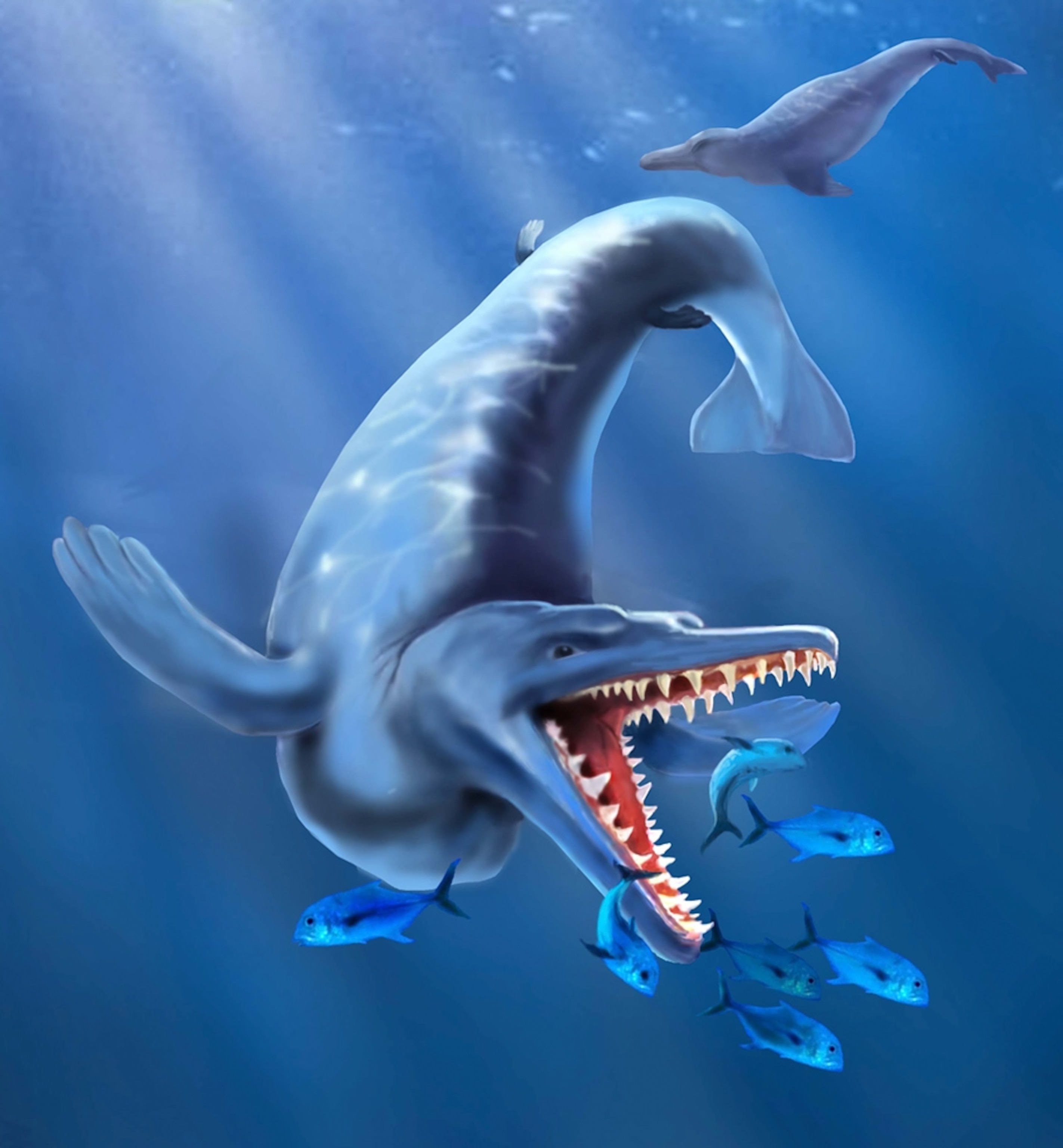
Oldest Antarctic Whale Found; Shows Fast Evolution
Ancient jawbone suggests whales evolved more rapidly than thought.
The oldest known whale to ply the Antarctic has been found, scientists say.
A 24-inch-long (60-centimeter-long) jawbone was recently discovered amid a rich deposit of fossils on the Antarctic Peninsula (map).
The creature, which may have reached lengths of up to 20 feet (6 meters), had a mouthful of teeth and likely feasted on giant penguins, sharks, and big bony fish, whose remains were also discovered with the jawbone.
The early whale swam polar waters during the Eocene period, some 49 million years ago. Its age suggests fully aquatic whales evolved from their mammalian ancestors more rapidly than previously thought, said researcher Thomas Mörs, paleozoologist at the Swedish Museum of Natural History.
Based on 53-million-year-old fossils of whale-like, semi-aquatic mammals, scientists had thought mammals gave rise to whales in a process that took 15 million years. The new find suggests it took just 4 million years. (See a prehistoric time line.)
What's more, "as soon as they became fully marine animals, they dispersed all over the world, showing the great success of the whale construction," Mörs said in an email.
(See "Oldest Antarctic 'Sea Monster' Found.")
Whale Lived in Warm Antarctic
Not even cold waters were obstacles for early whales, he said—though Antarctica during the Eocene was much warmer than it is today.
The continent was green, carpeted in forests that housed marsupials and mammalian survivors from the dinosaur age, said Mörs, who is preparing a paper on the whale for publication in a journal.
"The shores were inhabited by colonies of penguins, among them giant ones. And the marine waters were still warm enough for leatherback turtles and a diverse shark fauna," he added.
And ancient whales, too.
An abstract of the findings was published for the 11th International Symposium on Antarctic Earth Science held in July in Edinburgh, Scotland.